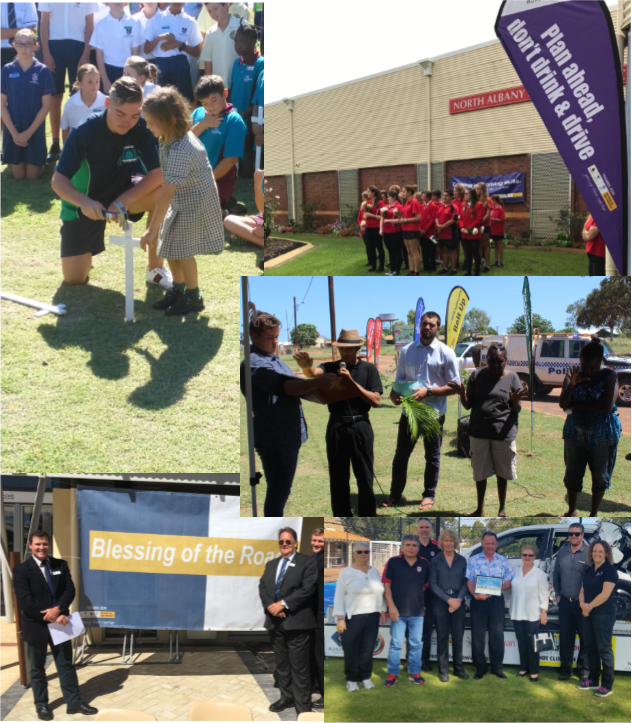Blessing of the Roads 
The Blessing of the Roads campaign provides Local Governments with an opportunity to encourage their communities to work together towards a future of zero road deaths and serious injuries on our roads.
Blessing of the Roads also provides Local Governments with an opportunity to remember those who have been affected by road trauma; recognise the dedication and efforts of those, both full-time and volunteers, who work towards preventing road trauma in Western Australia; and support the actions and steps the Local Government is taking to create communities which prioritise safety outcomes, such as implementing road safety policies.
Campaign Dates
Traditionally, Blessing of the Roads campaign activities and promotions run during the week leading up to the Easter long weekend.
Background
Blessing of the Roads was first coordinated by RoadWise in 1999. It is a statewide community road safety campaign run in the lead up to and during the Easter long weekend, when many people travel long distances to visit family, friends or holiday destinations.
The Blessing of the Roads campaign is aligned to the globally-recognised safe system approach to road safety, working towards a long term vision of a road transport system where crashes resulting in death or serious injury are eliminated.
The campaign intends to enable Local Governments in building community support for the long-term vision and actions to achieve zero deaths and serious injuries from road crashes.
Blessing of the Roads is non-denominational and can be embraced from a non-religious perspective.
Purpose of the Campaign
- To help create a zero-focused culture among those who design and build roads and vehicles, and those who use the road network.
- Promote working together to prevent road trauma.
- Provoke the thought that we should not be willing to accept that anyone should die or be seriously injured on our roads.
- Provide an opportunity to remember those who have died or been seriously injured in a road crash to drive actions which change the results into the future.
- Recognise the dedication and effort of those, both full-time and volunteers, who work towards reducing road trauma in WA.
- Allow communities to support the actions and steps Local Governments are taking which prioritise safety outcomes, such as implementing road safety policies.
Campaign Resources and Tools
WALGA’s RoadWise has prepared a range of resources and tools to assist Local Governments in localising and implementing their campaign initiatives and disseminating road safety messages.
To access the resources, click here
Acknowledgement
WALGA’s RoadWise would like to thank everyone who has participated in the Blessing of the Roads campaign since 1999.
The Blessing of the Roads campaign has provided an opportunity for everyone to reflect on those who have died or been seriously injured in road crashes and encouraged others to be more road safety aware.
By working together, organisations and the community can contribute to the long-term vision of zero fatalities and serious injuries on our roads.
